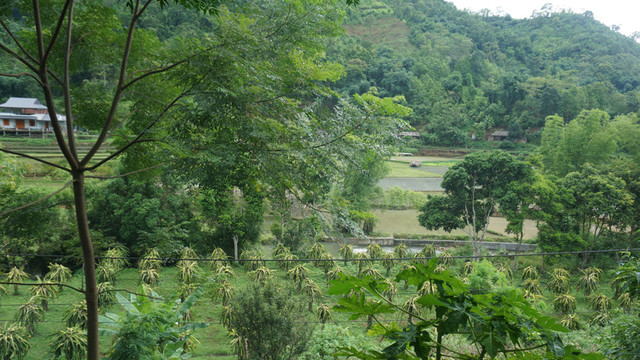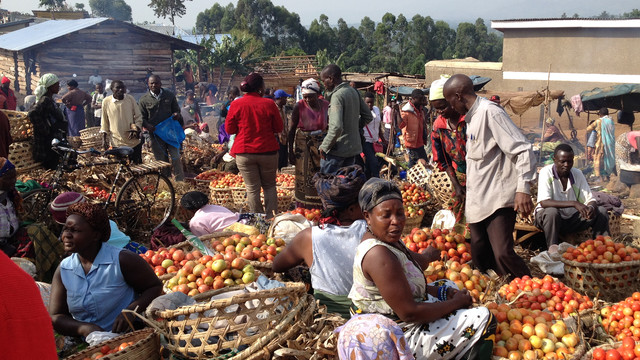Why does gender matter in a ‘just transition’?
This IIED Debate on Thursday 26 October explored the idea of a just transition and the implications for gender justice across different sectors.

Women working in rice fields, Indonesia (Photo: Emilia Wiśniewska via Wikimedia, CC BY-SA 4.0)
The climate crisis is already having catastrophic consequences for millions of people and their livelihoods, and for ecosystems, biodiversity and economies. In the effort to transform social and economic structures and build resilience, we are seeing increased momentum and support for a 'just transition' toward low-carbon, sustainable economies that 'leave no one behind'.
While fairness and equity are fundamental to just transition approaches and principles, there is much debate around the gendered dimensions of justice. This online event unpacked the concept of a 'gender just transition', exploring why it is important and how it manifests in different sectors.
The term ‘just transition’ first gained traction in North America in the 1970s and 80s, among trade unions and labour movements fighting to protect the rights of workers in polluting industries affected by new environmental regulations. The idea has since come to refer to a broader set of agendas around the transition to low-carbon societies and economies, and the move away from economies rooted in resource extraction, pollution and environmental degradation.
While there is growing global recognition of a need for a just transition, the term itself lacks a concrete definition. Perspectives on the gendered dimensions of justice and means for a low-carbon transition diverge widely among professionals from different sectors.
This online IIED Debates event brought together leading thinkers in energy, extractives and agriculture sectors to explore what gender justice means for different people and how different conceptualisations and approaches could inform a 'just transition'.
Drawing on evidenced examples, our speakers discussed how to apply gender just transition interventions in different sectors. We learnt about feminist approaches to just transitions and how to include women and gender minorities in just transition processes.
Speakers
- May Thazin Aung (moderator) is a researcher with IIED. Her work focuses on designing and delivering climate finance to least developed countries at different levels of governance. She is interested in promoting equitable access to climate finance and supporting community empowerment through climate action
- Nokwanda Maseko is an economist at TIPS (Trade & Industrial Policy Strategies). She was previously a budget analyst at National Treasury and an assistant director at the Economic Development Department (EDD) focused on industrial policy
- Sophie Kwizera is the co-head of policy and programmes and the advisor on natural resources and just transition at ActionAid (the Netherlands).
- Laura Del Duca is a research associate at SEI headquarters in Stockholm and part of the rights and equity team in the Resources, Rights and Development Division
Coverage
You can watch a recording of the event below or on IIED's YouTube channel, where individual links to the start of each speaker's contribution are also provided.
About IIED Debates
This event was part of the IIED Debates series. Through the convening of expert speakers and external stakeholders, IIED brings together an international community to discuss critical issues.
IIED Debates encompass both physical and digital events, including critical themes, breakfast debriefs and webinars. These events are public and are hosted regularly throughout the year online and when possible in our London and Edinburgh offices.
IIED events newsletter
Sign up to our mailing list for updates and invitations to events throughout the year, including webinars, critical themes and debriefs.
Contact
Juliette Tunstall (juliette.tunstall@iied.org), internal engagement and external events officer at IIED


